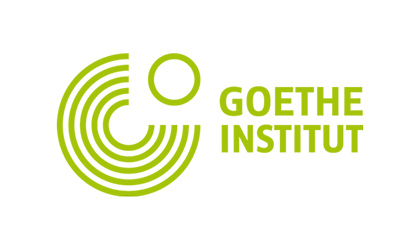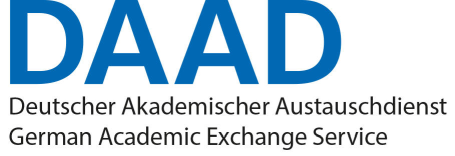Semester 1 |
Credits |
|
3 |
|
3 |
|
3 |
| 3 | |
| 3 |
Semester 2 |
Credits |
|
3 |
|
3 |
|
3 |
| 3 | |
| 3 |
Semester 3 |
Credits |
Industrial Internship Utilize knowledge to solve or analyze engineering problems that occur in a factory, as well as to work in an industrial environment. Students must write a working report summarizing their jobs and outcomes. To realize and understand the real nature of chemical engineering works, students will spend time for four months doing a project-based internship at qualified companies in Thailand, or in Germany. The project topic for internship will be assigned by the company prior to the start of the internship, so the students know what they are going to do and can prepare themselves in advance. Several types of project topic may be assigned e.g.
Students will have a chance to experience the practical problems in industries and apply scientific knowledge to the real use. Past Participated Companies for Internship • Aliseca GmbH, Germany • Bangchak Petroleum Public Company Limited, Thailand • Bayer Technology Services GmbH, Leverkusen Germany • Bayer Thai Ltd., Thailand • Cognis, Germany (now taken over by BASF) • Cognis Thai Ltd., Thailand (now taken over by BASF) • H.C. Starck Co., Ltd., Thailand • PTT Plc., Research and Technology Institute, Thailand • PTT Global Chemical Plc., Thailand • SCG Chemicals Co., Ltd., Thailand • Thai Ethoxylate Co., Ltd., Thailand |
4 |
Semester 4 |
Credits |
Master Thesis In the last semester of two-year study program, students will have learn and develop their research skills by taking a Master Thesis for a period of six months. The research topics of Master Thesis are generally industrial-related topics. They are typically initiated by researchers at TGGS, based on their personal research interests or based on special request from industries. In case of conducting the Thesis at RWTH Aachen University, the research topic will be directly assigned by the AVT professors. |
12 |
List of Elective Courses |
Credits |
Advanced Separation Technology Advanced design strategies for separation processes with the following topics: Advantage of integrating unit operation, Reactive distillation, Reactive extraction, Liquid-membrane extraction, Chromatography, Simulated moving bed chromatography. |
3 |
Multiphase Flow Gas-Liquid systems, fluid-solid systems, and solid-liquid-gas systems. Design criteria for two-phase and three-phase flow systems. Application of two-phase flow in pollution treatments. Application of two-phase flow in separation technology. Application of three-phase flow in fluidized bed, petrochemical process, and petroleum engineering. |
3 |
Advanced Process Heat Integration Advanced topics in process heat and power integration including: Pinch analysis for maximum energy recovery, Heat exchanger network with a minimum number of units, Superstructures for minimization of annual costs, Heat integrated distillation trains, Positioning heat engines and heat pumps, Heat integration of batch process. |
3 |
Biochemial Engineering Introduction to microbiology. Enzyme kinetics and deactivation. Transport phenomena in bioprocess. Interfacial mass transfer in cellular system. Growth kinetics. Fermentation and applications. Product recovery. Bioreactor design and scale-up. |
3 |
Membrane Technology Principle of membrane processes. Membrane characterization and preparation. Dialysis and electrodialysis process. Reverse Osmosis. Microfiltration. Ultrafiltration and nanofiltration. Pervaporation. Applications of Membrane technology in separation processes. |
3 |
Energy Technology for Chemical Engineers Overview of energy situation and trends. Fundamentals of thermal energy systems and energy conversion processes in chemical industry. Principles of main energy technologies: fossil energy, solar energy, wind energy, biomass and biofuel energy, and fuel cell. |
3 |
Catalytic Reaction Engineering A study of catalysis theory, application, preparation and analysis. Understanding towards scientific problems arising behind catalysis processes and systems with fashionable catalytic equipment and techniques. Principle of heterogeneous catalysis, for instance, selectivity of catalysts, definition of catalytic activity, procedure of catalytic adsorption and desorption, kinetics of surface reactions, characterizations of catalysts and their surfaces including gas-phased probe reactions and temperature programmed reactions, the significant of pore structure and surface area in heterogeneous catalysis, the solid-state and surface chemistry of catalysis and classic catalytic reactions. |
3 |
Industrial Enzymology Enzyme nomenclature. Enzyme structure. Enzyme biosynthesis and genetic information. Structure-function relationship. Enzymatic and chemical modification. Protein engineering. Enzyme purification. Enzyme kinetics. Enzymatic analysis. Measurement of enzyme activity. Enzymes in biotechnology. Heterologous enzymes. Metabolic engineering for products. |
3 |
Selected Topics in Chemical and Process Engineering I Lecture by experts, studies, seminar and/or individual investigations in selected or specific areas of chemical and process engineering, including the topics concerning the new or advanced knowledge in chemical and process engineering. |
3 |
Selected Topics in Chemical and Process Engineering II Lecture by experts, studies, seminar and/or individual investigations in selected or specific areas of chemical and process engineering, including the topics concerning the new or advanced knowledge in chemical and process engineering. |
3 |
Biorefinery Introduction of the integrated approach required in modern biorefinery. Demonstration of the concepts biological and chemical knowledge to be applied in biorefining process. Use of conversion technologies of various types of biomass as a renewable resource to produce high value bioenergy and biochemicals. Also, the environmental, safety, health, quality and sustainability aspects, as well as the economical feasibility and reliability, and related technology development. |
3 |
Process Modeling and Simulation Introduces the methods and techniques of dynamic model building skills for chemical and biochemical processes with the following topics: uses and benefits of system modelling, model development, models of heat transfer equipment, separation processes and reactors, steady state and dynamic models, time domain solutions, block diagram representation, modelling of control loop elements, and application of computer simulation for solutions of models. |
3 |


